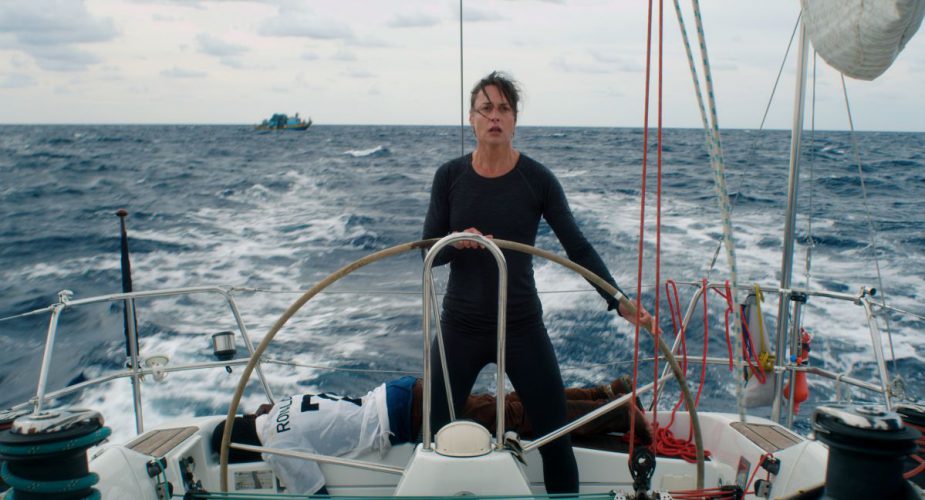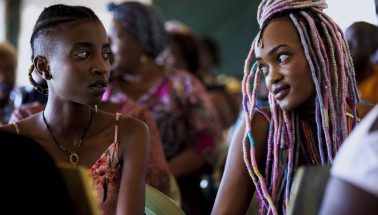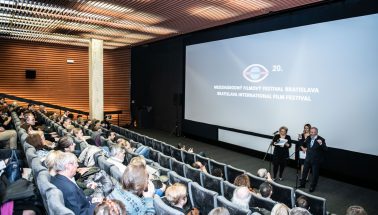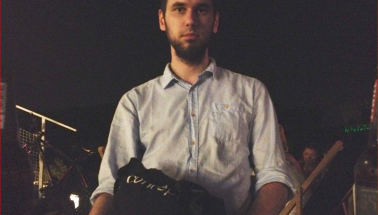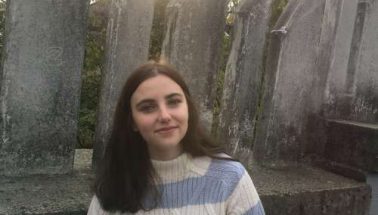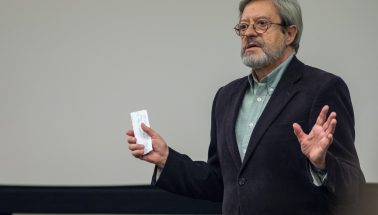“Cinema is a great medium for sharing common European values”
Dominika Jarečná was born in 1999 in Bratislava. She currently studies Theory and History of Arts at the Faculty of Arts, Masaryk University in Brno (Czech Republic). She was a member of the Giornate degli Autori jury at this year’s Venice IFF and is a LUX Prize ambassador for the years 2018 and 2019.
Dominika is interested in a wide range of art forms – from fine arts and architecture to poetry and film. The last one has a special place in her heart, as to her, film is a synthesis of all arts, pleasing all of our senses.
The LUX Prize has become a traditional and stable part of the Bratislava IFF programme. This award has been awarded by the European Parliament since 2007 with the aim to popularize original European cinema in the EU, Norway, Liechtenstein, Iceland and Switzerland. It seeks to inspire the EU citizens and encourage them to discuss and reflect on themselves and their identity. The thing is that the system is set in a way where most European films are screened only in the country where they were shot and rarely distributed abroad.
Dominika, could you please explain to our readers and viewers – the visitors of the Bratislava IFF 2018 – what does being “a LUX Prize ambassador for the years 2018 and 2019” mean?
A LUX Prize ambassador is a person whose main role lies primarily in promoting films within his or her local community and organizing screenings in order to provide ordinary viewers with the opportunity to see films that illustrate the universality of European values and are excellent examples of contemporary European filmmaking.
I think a good platform is forming here, which can inspire and motivate young people to engage in cultural events and discuss current events. How have you benefited from this opportunity and how did you even get this role in the first place?
The role of a LUX Prize Ambassador came in the process of the 28 Times Cinema project (founded in 2010 under the auspices of the LUX Film Prize – prize of the European Parliament with Europa Cinemas, Cineuropa and Giornate degli Autori as its partners), which I had the honour to be part of. I applied and a month I learned that they chose me. Thanks to this role I, among other things, personally met the directors of the LUX Prize finalists and listened to where the ideas for their films were born and how the process of creation went. I also took part in the discussions after the screenings, which I consider a tremendously enriching experience.
Could you tell us more about what you’ve learned?
For example, it took five years (2012-2017) for Mila Turajlić to make her film The Other Side of Everything, even though the original idea was born in 2005 already. However, Mila herself said that after a few months of filming she found she was not mature enough to make this film and so she dropped it and made another one in the meantime.
Wolfgang Fischer began working on the screenplay for Styx nine years ago when he started to feel that a new era of changes in migration is starting to take place in Europe. The name is a reference to the Greek mythological river Styx, which is the border between the realm of the living and the dead. According to Wolfgang, it’s a perfect metaphor for the film.
As you have already indicated, the visitors of the Bratislava IFF 2018 will be able to see three films nominated for the LUX Prize: Styx (d. Wolfgang Fischer, Austria/Germany, 2018), Girl (d. Lukas Dhont, Belgium, 2018) and The Other Side of Everything (Druga strana svega, d. Mila Turajlić, Serbia/France/Qatar, 2017). Could you introduce them briefly?
Unfortunately, I have not seen Girl yet, but I’m planning to at the festival. Instead, I can tell you about the winner of this year’s LUX Prize Woman at War (Kona fer í stríð, 2018), which has not been screened in Slovakia yet. The film was shot by the Icelandic director Benedikt Erlingsson. Despite having a comedy undertow, it is an intimate drama that covers political themes. At the heart of the story is a woman imprisoned in the world of corporations, who is willing to risk everything to save the Icelandic nature and its virgin mountains. It’s a film with a heart, capturing the theme of climate change, ecology, and radical activism.
The Other Side of Everything is a documentary film and an intimate depiction of the rewriting of the Balkan history through the eyes of Mila’s mother Srbijanka Turajlić, a former activist and university professor, her devotion to the country, but also the personal and political struggle against regimes that have ruled in Serbia over the past decades.
Styx is a vibrant drama confronting the subject of migration. The film tells the story of a doctor who sets out on a voyage across the Atlantic, where she meets with a ship full of desperate African refugees. The film was shot almost exclusively at sea, giving a view of the heroine’s moral dilemma and forcing us to think not only with our brains but also with our hearts.
Is that why the viewers should see them?
Cinema is a great medium for sharing common European values, and that is reflected in what films the LUX Prize supports. All three films are strong on both content and craftmanship, and touch on current events in the European Union. Each of the filmmakers showed a dose of courage and showed they were not afraid to risk when successfully tackling some very relevant topics of our age. I believe these films will raise public awareness of European cultural diversity. By having a strong political and social message, they incite to a reflection on Europe and its future, as well as escalate public debate on the cultural aspects of the European Union.
This year, you have a challenging role at the festival – you are one of the three members of the Student Jury, deciding on the winner of the Student Jury Award. I assume you’ve already seen the festival program. Which films are not to be missed?
From the Fiction Competition, I would recommend seeing José, which I had the opportunity to evaluate at the Venice IFF as part of the independent section Giornate degli Autori. Another film I saw in Venice in the presence of its crew and actors is Julian Schnabel’s At Eternity’s Gate. The director is one of my personal heroes and his film is a beautiful homage to art, in which he sensitively captures the broken mind of the genius Vincent Van Gogh. I would add it to the list of my favourite films from this year’s Venice festival.
Thank you for the interview.
See you in the cinema!
Anna Kačincová Predmerská
